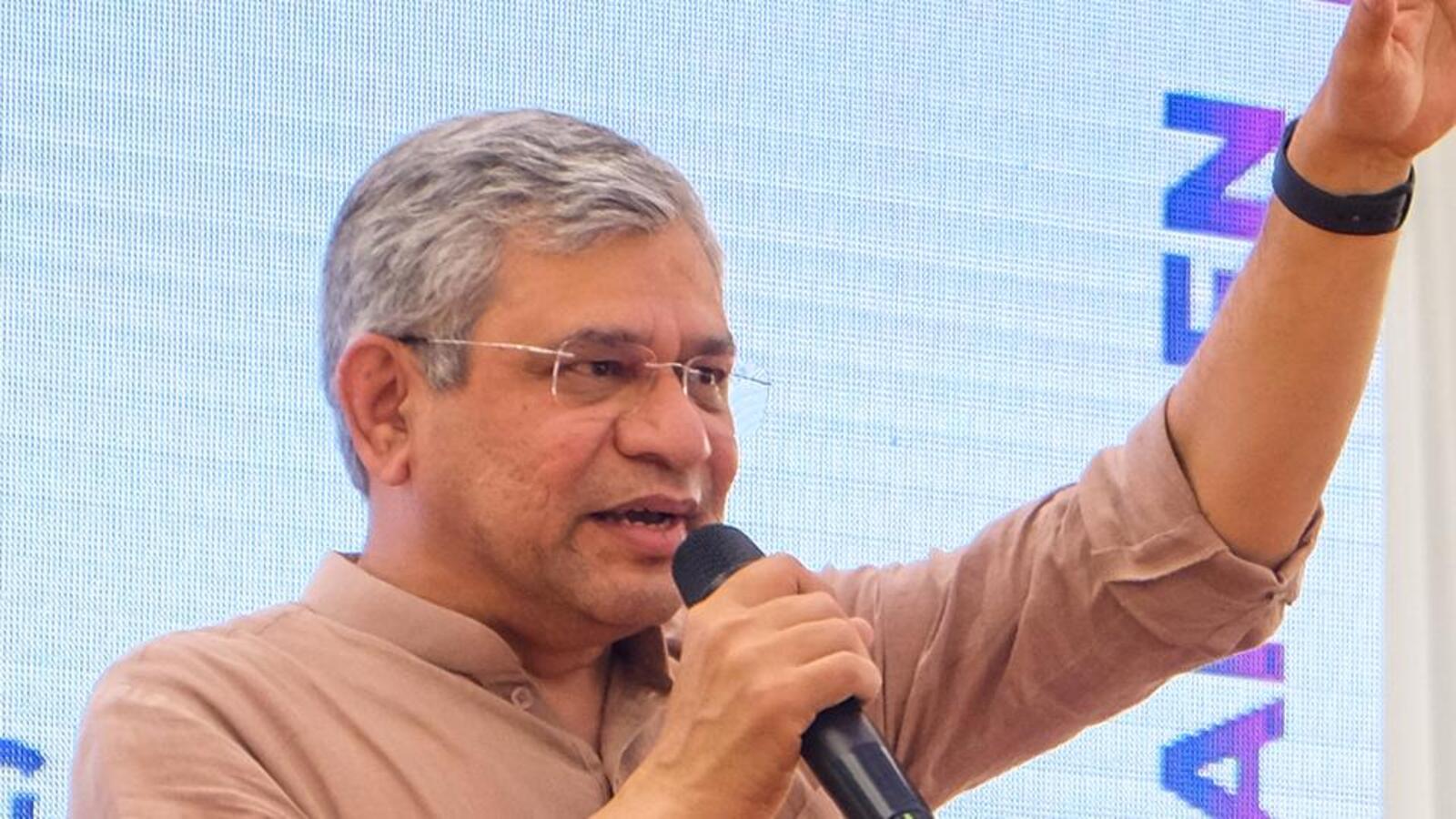Creator Economy Revolutionizing Media: Vaishnaw
Politics Politics of IndiaPosted by AI on 2025-04-20 07:59:25 | Last Updated by AI on 2026-02-05 09:15:42
Share: Facebook | Twitter | Whatsapp | Linkedin Visits: 19

"A fundamental shift is happening in media," declared Union Minister Ashwini Vaishnaw, highlighting the transformative impact of the creator economy. This burgeoning digital landscape, empowered by readily available technology, is democratizing content creation and challenging traditional media structures. Vaishnaw's observation underscores a growing recognition of how individuals are increasingly leveraging digital platforms to produce and share their own narratives, bypassing established gatekeepers.
The rise of user-generated content has fostered a diverse media ecosystem where anyone with a smartphone and an internet connection can become a content creator. From short-form videos on platforms like TikTok and Instagram to long-form articles and podcasts, individuals are finding new avenues to express themselves, build communities, and even generate income. This shift represents a significant departure from the traditional media model, where large organizations controlled the flow of information. Now, the power dynamic is evolving, with audiences increasingly turning to independent creators for news, entertainment, and information. This transition presents both opportunities and challenges. While it fosters greater diversity and allows for niche content to flourish, it also raises concerns about misinformation, content moderation, and the sustainability of independent creators' livelihoods.
The minister's emphasis on technology's role in this transformation is crucial. Affordable smartphones, readily available internet access, and user-friendly content creation tools have lowered the barriers to entry for aspiring creators. This has led to an explosion of diverse voices and perspectives in the digital sphere, enriching the media landscape. However, this democratization also necessitates a parallel focus on media literacy and critical thinking among consumers. As individuals navigate an increasingly complex information environment, the ability to discern credible sources from unreliable ones becomes paramount.
This fundamental shift in media has profound implications for the future of information dissemination. Traditional media organizations are adapting to this changing landscape by embracing digital platforms and experimenting with new formats. The lines between professional and amateur content creation are blurring, and the definition of "media" itself is expanding. This evolution presents both opportunities and challenges for all stakeholders involved creators, consumers, and regulators alike. Navigating this evolving media landscape requires a thoughtful and balanced approach that fosters innovation while addressing the ethical and societal implications of this transformative shift.
This ongoing evolution of the media landscape requires continuous adaptation and dialogue. As the creator economy continues to reshape how information is produced and consumed, the focus must remain on ensuring a responsible and sustainable media ecosystem that serves the public interest.
Search
Categories
Recent News
- Opposition's Strategy: Day 4 of India's Budget Session
- Mumbai's Shocking DNA Revelation: A Father's Heinous Crime
- A Young Survivor's Journey: Overcoming Bone Cancer
- IAF's Vayu Shakti: A Showcase of Aerial Prowess
- Marital Dispute Over Moisturizer: A Bizarre Court Case
- Rajasthan Hit-and-Run: A Deadly Honeymoon Twist
- Massive Drug Bust: 75 Arrested in Coordinated Operation
- Hyderabad's New Strategy: Targeting Drunk Driving at its Source
Popular News
- Navigating IPO Market Dynamics Amid Volatility and Regulatory Changes
- Massive Worldwide Microsoft Outage Disrupts Multiple Sectors
- Panjapur Bus Stand to Reshape TNSTC Routes
- తెలుగుదేశం పార్టీ - పేదరికాన్ని నిర్మూలించడంలో వాగ్దానం
- Universities Embrace Remote Learning Technologies Amidst Ongoing Pandemic